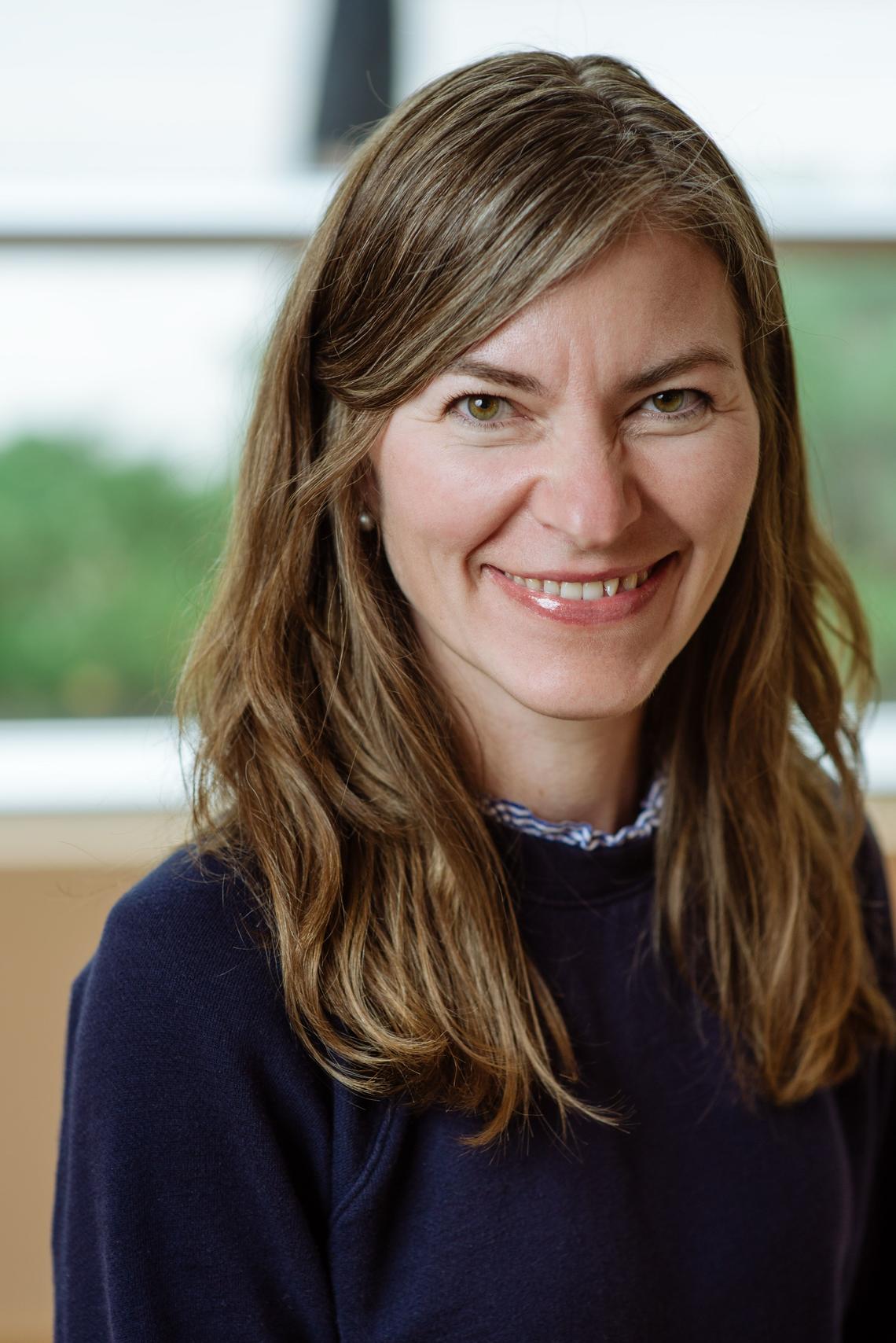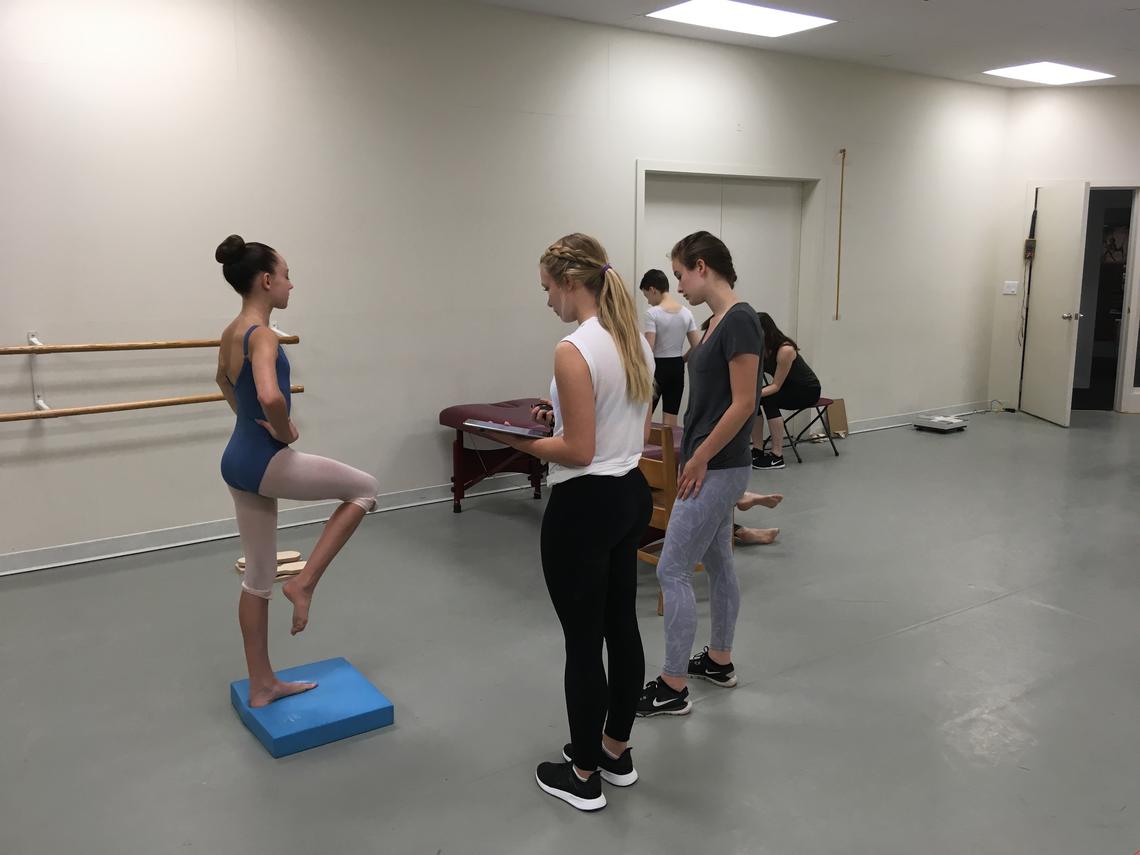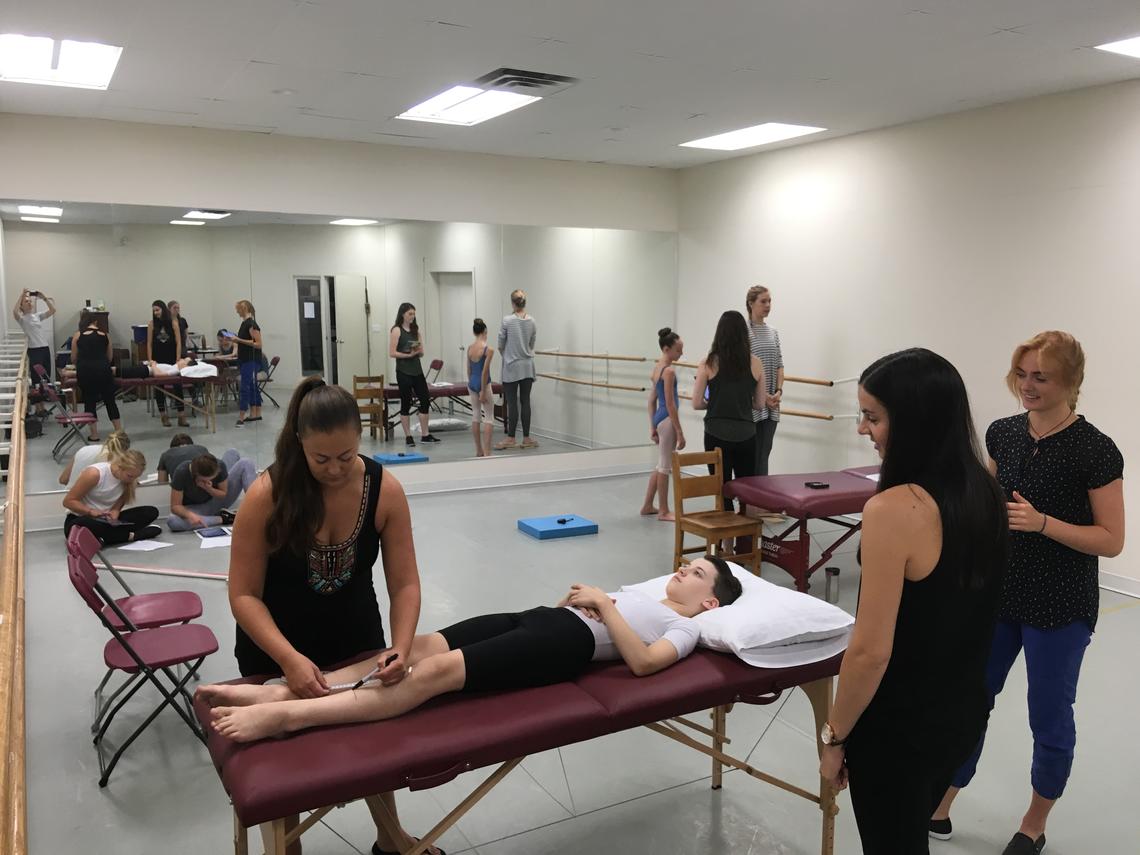Oct. 16, 2017
Pioneer in dance science on point with injury prevention and Dance Montage

Sarah Kenny is used to breaking new ground in dance science. She was one of the first graduates from a new MSc program in dance science at Trinity Laban Conservatoire of Music and Dance of London, U.K., and now she will lead the first combined dance and kinesiology degree program in Canada in her new position as assistant professor for the faculties of kinesiology and arts.
Since the dance and kinesiology degree program was launched in 2014, Kenny has mentored students as a sessional instructor and researcher. She was formally appointed as an assistant professor in July and looks forward to expanding the program within the university and in the dance community.
Kenny already has strong connections to the dance community — for her PhD research in dance injury prevention, she worked with the School of Alberta Ballet in addition to UCalgary’s undergraduate dance majors. After her research project was complete, she was approached by Alberta Ballet to do further studies into injury prevention for dancers.

Sarah Kenny.
Tim Nguyen, Alberta Ballet
Kinesiology colleagues offer new perspectives in research
“Usually we ask the community members to take part in research, not the other way around,” says Kenny. She found it a refreshing change as did her colleagues in the Faculty of Kinesiology, who she says stepped up to offer Kenny new research perspectives in physiology, psychology, biomechanics and socio-cultural aspects of sport as relates to dance.
“The best way to break new ground in dance research is to draw from other disciplines,” says Kenny. She says injury research is more common in sports such as hockey and soccer; dance is not so typical, so she was grateful her colleagues were interested in collaborating on dance. Pilot projects are now beginning to come to fruition in the faculty to understand dancers’ constructs of pain and injury, mechanisms of social support, bone mineral density, levels of fatigue, and training loads to prevent injury.

Students carry out an exercise.
While many sports use periodization — a systemic training routine to maximize performance — this is not common with dance. A research student is currently investigating methods of how to potentially implement periodization for dancers.
“This opens up so many new avenues for dance science,” says Kenny. “There are research gaps in dance science literature, and we have the opportunity to contribute to filling those gaps with the elevated rigour of research coming out of the Faculty of Kinesiology.”
Kenny’s next step is to reach out to other dance communities in Calgary including recreational dancers, as she says this is an under-served population for injury risk research and surveillance. “Calgary has an immense dance population and this makes it a great place to understand dance injury risks and establish some best practices for dancers.”

Students carry out an exercise.
Kenny inspired to focus on the science behind the dance
Kenny first started dancing at the age of four and became serious about dance in junior high, leading her to complete a BA in dance at UCalgary with a focus on contemporary dance. It was after she took a course on somatic practice (Mitzvah) that improved her performance considerably that Kenny says she was inspired to change direction and focus on the science behind dance. Somatic practice is an umbrella term for a variety of different methods and techniques, of which Mitzvah Technique is one.
For the past six years Kenny has focused on academia, research and family commitments, but when original cast members were encouraged to audition for the 48-year celebration of UCalgary’s Dance Montage, she couldn’t resist the opportunity. She got the role.
“I am a little nervous, because it’s been six years since I’ve been on stage, and nearly 20 years since I danced in this role, but I’m looking forward to performing again,” says Kenny. “This will be a multi-generational show.”
Kenny will perform in Dance Montage at the end of November.

Students carry out an exercise.
